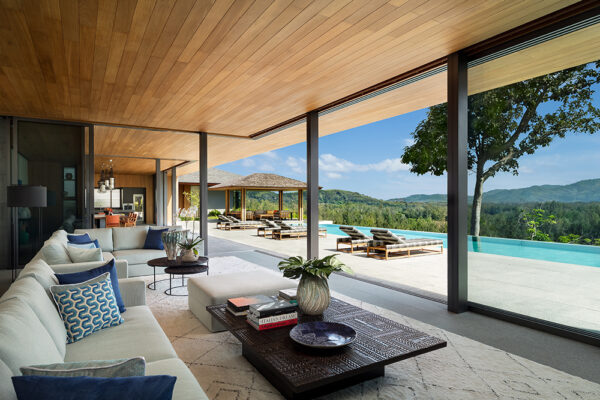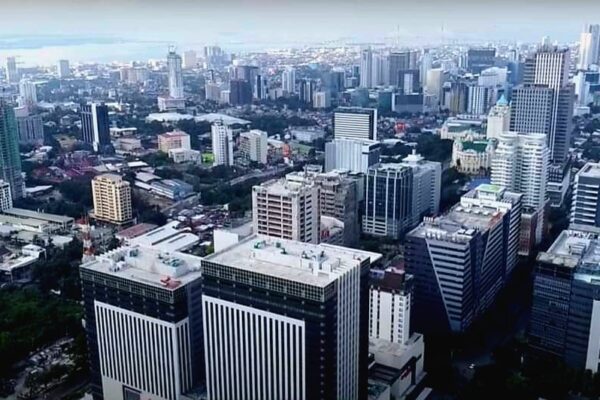Can tourism-focused real estate help the Philippine property market rebound?
It feels a bit odd talking about tourism-focused real estate when most visitors are unable to travel to the Philippines at the moment. However, it can be an important driver of a Philippine property market rebound once the situation returns to normal.
Philippine Department of Tourism (DOT) data showed there were 8.26 million foreign arrivals in 2019, more than a 15 percent increase from the previous year. That number is dwarfed by the country’s regional peers. In 2019, Indonesia recorded roughly 16 million international arrivals, Malaysia welcomed more than 26 million tourists, Vietnam received an estimated 19 million visitors and Thailand surpassed 40 million arrivals.
So, what gives?
It has nothing to do with a lack of interesting destinations. Tourists who visit the Philippines almost always praise the country’s warm hospitality and beautiful scenery. Arrival numbers elsewhere in Southeast Asia are buoyed by inter-region travel, something not seen in the Philippines due to its isolated location.
But this isn’t really a huge issue, especially as it relates to tourism-focused real estate. Apart from some demand from Singapore, there isn’t a lot of intra-regional property buying. The bulk of tourist arrivals to the Philippines in 2019 came from China, South Korea, USA, Japan, and Australia.
Tapping into the retirement market could also benefit the country. The Philippines has one of the best retirement visas available in Southeast Asia. This could help it attract more long-stay visitors.
On the domestic front, an additional 60 million trips are made by locals each year, an important figure to note. This means there is a large base of both international and domestic property buyers who will likely return to the country’s popular tourist destinations once the COVID-19 situation has improved.
Being ready to tap into this market and deliver tourism-focused real estate could be a catalyst in a Philippine property market rebound. Of course, it is also much easier said than done.
WATCH THIS VIDEO:
What’s holding the Philippines back?
According to the Philippine Statistics Authority (PSA), tourism accounted for 12.7 percent of the country’s GDP in 2019, up from 5.6 percent in 2000. Both government and private sector investment in the tourism sector has grown as well.
The PSA found that private investment rose by an average of 19.3 percent annually between 2010 and 2019. Government investment in tourism infrastructure and other related fields increased by 4.6 percent on average from 2012 to 2019.
This is good, but not nearly enough. While tourism infrastructure has improved in some parts of the Philippines, such as Cebu and Puerto Princesa, more work is needed to make the country a viable destination for real estate investors.
Apart from improving infrastructure, developers must be more in tune with the needs of tourism-focused real estate buyers. There are a few companies getting it right (we will get to those a little later in the article) but too many firms aren’t being innovative when launching new projects in tourist destinations.
Looking at tourism-focused real estate success in Southeast Asia
Developers in the Philippines don’t have to look far to find tourism-focused real estate success stories. Bali has been attracting foreign property investors for decades in spite of complex laws that prevent freehold ownership. Having a first mover advantage has helped the island with homebuilders and agents now boast decades of experience in helping property buyers.
In Thailand, the rise of the condotel helped attract a new wave of property buyers who can enjoy the best of both worlds–investment returns and a holiday home. If you are unfamiliar with the condotel concept, it is a project sold similar to a pre-selling condominium but operated like a hotel.
The main difference between most condotels in the Philippines and ones in Thailand’s tourist areas is management. Thai homebuilders are partnering with well-known, 4- and 5-star hotel brands to manage their condotels. These are more attractive to buyers since they trust the brand and are more popular with guests ensuring strong rental returns. In the Philippines, many developers try to manage the property themselves which can be off-putting to potential investors.
Tourism-focused real estate in Vietnam has taken off during the past five years despite foreign buyers being unable to access this market. Driven entirely by domestic demand, developers here have been able to take advantage of the country’s rapidly growing tourism sector. Similar to Thailand, most projects are condotels or other properties that provide on-site management for investors.
If tourism-focused real estate in the Philippines is going to grow, developers need to understand what property seekers are after. Most require a hands-free investment being operated by a hotel brand they trust. They also like having the option to stay at the property for a week or two every year. This is something a handful of real estate developers in the Philippines have adapted to.
Early movers

While there hasn’t been a lot of activity when it comes to tourism-focused real estate in the Philippines, a few developers have recognized the potential of the sector. In Cebu, Grand Land has been at the forefront. The Grand Tower, a mixed-use project containing the Dusit Princess Cebu, was one of the region’s first condotels targeting users/investors.
The project will be operated as a hotel with unit owners sharing net room revenue. Additionally, they are entitled to stay at the property 15 days each year. Dusit Princess Cebu proved to be popular among both local and international investors which saw it quickly sell out. Construction is ongoing and the development remains on schedule.
The Chancellor Hotel from Global-Estate Resorts, Inc, a subsidiary of Megaworld, is another tourism-focused real estate project making waves in the country. Located in Boracay, this condotel is perhaps the most ambitious to date. It allows property buyers a chance to invest in one of the country’s most popular destinations.
Can tourism-focused real estate help the Philippine property market rebound?
It’s important not to get carried away about what type of impact this can have. Tourism-focused real estate can help the Philippine property market rebound, but it is only one part of a larger equation.
Ultimately, this sector serves as a link between the property and tourism industries that can elevate both. Tourism-focused real estate in the Philippines won’t single-handily turn things around. However, it could help the Philippine property market reach new heights once the current situation has passed.
Developers may think demand isn’t there, but this seems like a miscalculation. Overseas buyers are already active in places like Cebu, but there are many more on the sidelines waiting for condotel projects that provide a hands-free form of investment.
There is likely to be greater demand for tourism-focused real estate from both domestic buyers and OFWs. That is because it ticks a lot of boxes in terms of what they are looking for. The potential for returns is good, there is no need to worry about management and it doubles as a holiday property.
That being said, it is necessary to mention the risk which we are living through now. Another global pandemic would harm tourism-focused real estate more than traditional properties. Both developers and investors will be keenly aware of that.
If you look at some of Southeast Asia’s other tourism destinations, you’ll see the property markets bounced back here faster than urban locations. Both Bali and Phuket have overcome catastrophic events to maintain their upward momentum.
At the very least, it won’t hurt the property sector to consider tourism-focused real estate moving forward. As we have seen elsewhere in the world, doing so may benefit everyone.
lifted from: DOT PROPERTY


